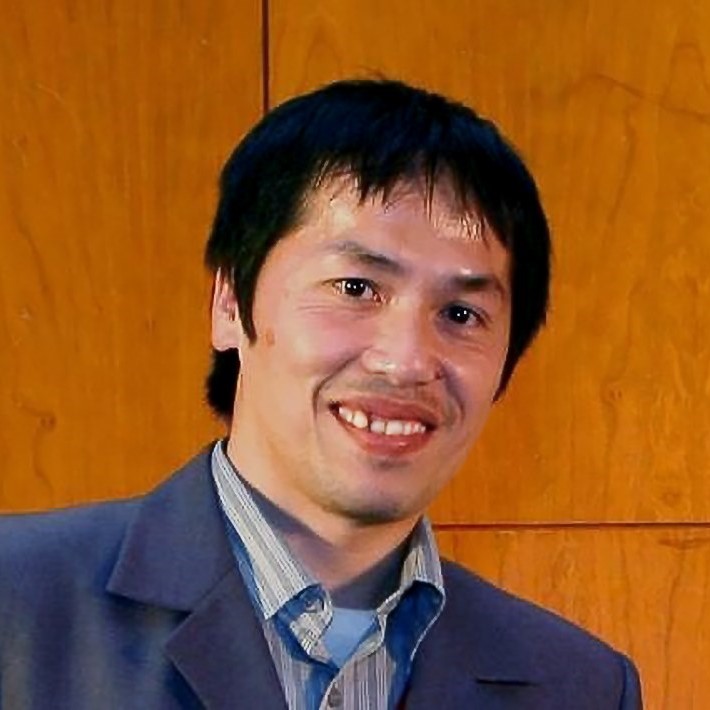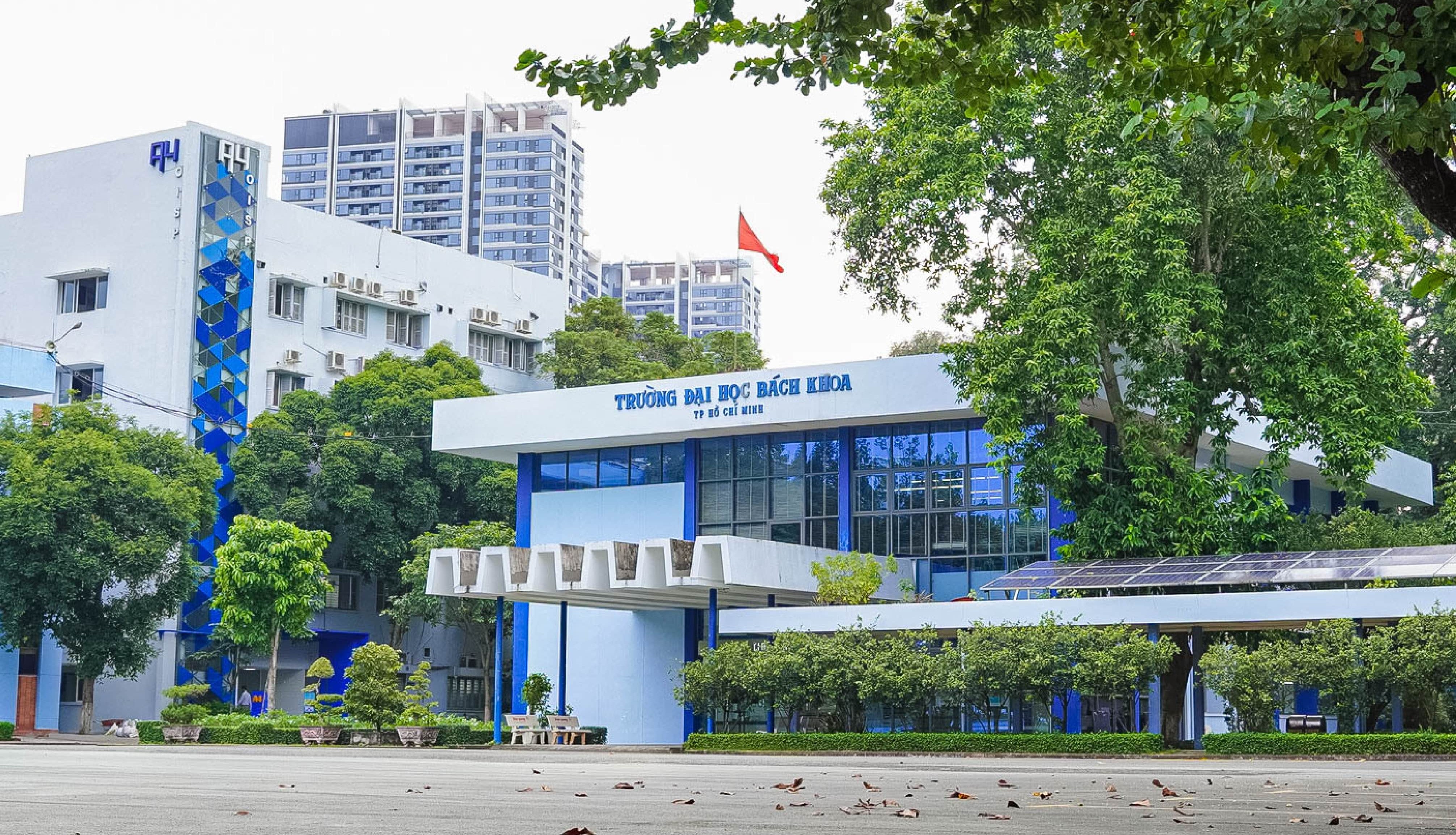

We are pleased to announce that the official proceedings of the 18th International Conference on Multi-disciplinary Trends in Artificial Intelligence (MIWAI 2025) will be published in Lecture Notes in Artificial Intelligence (LNAI), volumes 16353–16355.
Part I: https://link.springer.com/book/9789819549566
Part II: https://link.springer.com/book/9789819549597
Part III: https://link.springer.com/book/9789819549627
Thanh Tho Quan • Chattrakul Sombattheera • Hoang-Anh Pham • Ngoc Thinh Tran (Eds.)
Relive the highlights of MIWAI 2025 by exploring the full photo collection here.











Title:
Practical Epistemic Belief Revision for Skilled Digital AI Companions.
Abstract:
Current digitally embodied AI companions that are based on generic large language models lack the capability to respond dynamically to changing user-states (e.g.
emotions or moods) in the same way as an attentive human companion might. In this talk, we argue that skilled AI companionship can be achieved by enhancing generative AI with socioemotional
information and automated reasoning about situational knowledge. We show how epistemic reasoning and the theory of belief revision, generalized to a multi-agent context, can be used to appropriately
respond to cognitive states of the user in order to support uniquely skilled AI companionship. For the theory, we propose a generalization of the classical belief revision postulates and present a revision
operator that satisfies all of them.
Biography:
Professor Michael Thielscher is a Professor at the School of Computer Science and Engineering. He has been named the highest ranked scholar (lifetime achievement) in Artificial Intelligence
in Australia (and 48th/34th/41st in the world 2022/23/24) by ScholarGPS. He received his postgraduate diploma in 1992 and his Ph.D. in Computer Science in 1994, both with distinction, from Darmstadt
University. He then joined Dresden University, where he was an Associate Professor before he moved to his present position. His Habilitation thesis was honoured with the Award for Research Excellence by
the alumni of Darmstadt University in 1998, and in 2009 he won a Future Fellowship Award from the Australian Research Council. He is the author of over 200 refereed papers and five books, and he has co-authored
the award winning FluxPlayer system, which in 2006 was crowned the World Champion at the AAAI General Game Playing Competition. He will be the Program Chair for IJCAI-28. He was President of KR Inc from 2020 to 2022
and has been the General Chair for KR'20 and a Program Co-Chair for AI'12, KI'14, KR'18.

Title:
Kernel Methods in the Age of Deep Learning: the remarkable power of kernels, from Multimodal Fusion to Quantum Machine Learning
Abstract:
This keynote explores the enduring and emerging potential of kernel-based machine learning in the era dominated by deep learning. Building on the foundations of Neural Tangent Kernels (NTKs) and Deep Kernel Learning, it highlights how these frameworks offer new perspectives for interpreting and extending deep neural networks. After an overview of key kernel concepts, the talk presents recent advances from the speaker’s research group, emphasizing how kernel methods can effectively tackle challenges in multimodal data fusion, including heterogeneity and missing data, through innovative techniques such as the neutral point method and tomographic kernel combination. The keynote concludes with an exploration of Quantum Machine Learning (QML) in NISQ-based systems, demonstrating how QML can be reframed as a form of kernel machine learning. In particular, it discusses collaborative work with Verona University on path kernels for QML, which aim to replicate deep neural network capabilities within the quantum computing paradigm.
Biography:
Prof. David Windridge holds the chair of Data Science and Machine Learning at the Department of Computer Science, Middlesex University London, where he heads the AI and Machine Learning Research Group; he is also research lead for the Dept. of Computer Science. His research interests centre on practical and theoretical development in classical and quantum machine learning, generative AI, human-machine teaming & neuro-symbolic AI. (He also has a former research interest in astronomy/astrophysics, having obtained his Ph.D. in Cosmology at the University of Bristol, UK). He has authored around 200 academic publications in these areas and led various large-scale machine-learning projects in academic and industrial research settings, as well as interdisciplinary research projects across a range of academic areas and application domains. He holds a visiting position at the University of Surrey, UK and sits on the editorial board of the Springer journal Quantum Machine Intelligence.

Title:
Probabilistic Methods in Reinforcement Learning: From Theory to Real-World Impact.
Abstract:
Reinforcement learning (RL) empowers agents to optimize decisions in dynamic
environments, but noise, partial observability, and shifting dynamics require robust uncertainty handling.
Probabilistic methods offer a powerful framework to address these issues, including Bayesian inference,
Partially Observable Markov Decision Processes, and uncertainty-aware exploration. This talk explores how
probabilistic RL enables safe, efficient, and trustworthy AI systems. We highlight the cutting-edge trends,
such as scalable uncertainty quantification via conformal prediction, probabilistic dynamics models using normalizing flows,
and multimodal RL for robotics, healthcare, and autonomous systems. We illustrate enhanced exploration, safety, and decision-making under uncertainty
through real-world case studies. We address challenges, including computational scalability and fairness in decision-making, and outline future directions
for integrating probabilistic RL into next-generation AI. Discover how embracing uncertainty drives smarter, more robust RL systems for a complex world.
Biography:
Hung Son Nguyen received the Ph. D. in 1997, D. Sci. (habilitation) in 2008 and he is working as a professor in the University of Warsaw.
His main research interests are fundamentals and applications of Rough set theory, data mining, text mining, bioinformatics, intelligent multiagent systems, soft computing,
and pattern recognition. He has published more than 140 research papers in edited books, international journals and conferences on these topics.
Prof. Hung Son Nguyen is a fellow
of the International Rough Set Society, and a member of the Editorial Board of international journals, i.e., “Transaction on Rough Sets”, “Data mining and Knowledge Discovery”
(from 2005-2008) and “ERCIM News”, Computational Intelligence and the Manager Editor of “Fundamenta Informaticea”. He has also served as a program co-chair of RSCTC’06 and ’RSKT2012,
IJCRS2018, as a PC member of various other conferences including PKDD, PAKDD, AAMAS, RSCTC, RSFDGrC, RSKT, etc., and as a reviewer of many other journals.
He was involved in numerous
research and commercial projects including dialog-based search engine (Nutech), fraud detection for Bank of America (Nutech), logistic project for General Motors (Nutech), Semantic Search
Engine, Intelligent Decision Support System for Firefighting in Poland, RID – Development of Innovative Transport System and Recommendation system for fashion and cosmetic branches.

Title:
AI in Precision Farming: Opportunities and Challenges (Emphasis on Datasets Creation)
Abstract:
In the current digital era, the notion of Artificial Intelligence (AI) appears to become more a capability, than a technology in our day-to-day activities. Farming is a backbone of any country, and hence, development of AI enabled solutions, which could be deployed in real time scenario in support of farming is of current demand. Crop production, grading of crops, animal husbandry, and, land and resource management are the primary activities in farming. Precision farming with the support of AI requires capturing of enormous data to train the respective models for these activities.
This talk is to explore various challenges and opportunities in creating such data corpus. The talk specifically addresses creation of datasets and modelling of AI architectures related to fruits grading in general, classification and grading mango and banana fruits in particular. The talk introduces the problems such as grading of mangoes for their ripeness, detection of internally defected mangoes using NRI spectroscopy, and classification of mangoes into naturally ripened / chemically ripened. The problem of banana grading at bunch level shall be addressed. Further the talk also focuses on livestock animals’ management. Reasonably large datasets of images of dentition and images of faces of animals such as Cow, Oxen, Sheep and Goats respectively useful for age prediction and recognition of animals shall be presented. Never the less, the talk explores many applications related to the large corpus created on Mangos, Banana and animals. The talk also highlights on grading of bread, a bakery product through estimation of spoilage.
Overall, the talk mainly focuses on creation of corpus of data related to precision farming and it is expected to open up several AI related problems in precision farming for budding technocrats to explore further.
Biography:
D.S. Guru received the BSc, MSc, and PhD degrees in computer science and technology from the University of Mysore, India, in 1991, 1993,
and 2000, respectively. He is currently a Professor at the Department of Studies in Computer Science, University of Mysore, India. He was a fellow of BOYSCAT. He was a visiting
research scientist at Michigan State University. He is supervising a couple of major projects sponsored by the UGC, the DST, and the Government of India. He has authored 80+ journals
and 270+ peer-reviewed conference papers at international and national levels. His area of research interest covers image retrieval, object recognition, shape analysis sign language
recognition, biometrics, and symbolic data analysis. He is a life member of Indian professional bodies such as the CSI, the ISTE, and the IUPRAI. He is a founder trustee of the
Maharaja Education Trust, Mysore, which is establishing academic institutions in and around Mysore.

Artificial Intelligence (AI) research has broad applications in real-world problems. Examples include control, planning and scheduling, pattern recognition, knowledge mining, software applications, strategy games and others. The ever-evolving needs in society and business both on a local and on a global scale demand better technologies for solving more and more complex problems. Such needs can be found in all industrial sectors and in any part of the world.
The International Conference on Multi-disciplinary Trends in Artificial Intelligence (MIWAI), formerly called The Multi-disciplinary International Workshop on Artificial Intelligence, is a well-established scientific venue in the field of artificial Intelligence. MIWAI was established more than 17 years ago. This conference aims to be a meeting place where excellence in AI research meets the needs for solving dynamic and complex problems in the real world. The academic researchers, developers, and industrial practitioners will have extensive opportunities to present their original work, technological advances and practical problems. Participants can learn from each other and exchange their experiences in order to fine-tune their activities in order to help each other better. The main purposes of the MIWAI series of conferences are:
Artificial intelligence is a broad area of research. We encourage researchers to submit papers in the following areas but not limited to:
The Secure Edge-AI (SEAI) special session aims to explore the intersection of artificial intelligence (AI) and edge computing with a focus on security, privacy, and resilience. As AI-powered edge devices proliferate across industries such as healthcare, autonomous systems, IoT, and smart cities, ensuring their security and robustness is crucial.
We welcome submissions on topics including, but not limited to:
The AI in Industry (AIIN) special session aims to explore the use of AI and digital transformation (DX) in industry. Applications such as AI-powered systems for quality control, safety and security monitoring systems in manufacturing, smart manufacturing, fintech and economics applications are essential.
We welcome submissions on topics including, but not limited to:
This tutorial introduces the audience to the application of Generative AI (GenAI) for processing multimedia documents in small and medium-sized healthcare facilities. The presenters, including healthcare providers and GenAI researchers, will demonstrate how GenAI can manage information efficiently.
In developing countries like India, many clinics face challenges due to limited IT infrastructure, relying on handwritten or printed prescriptions and discharge sheets. The absence of structured databases complicates healthcare management. Additionally, radiologists and diagnostic professionals often dictate their findings, which are transcribed by secretaries. Training and maintaining qualified staff is another challenge for these clinics.
Generative AI offers a promising solution by digitizing handwritten, printed, and voice data from physicians, which can then be stored in a structured data warehouse. Our initiative involves collecting over a hundred voice and paper documents to build a comprehensive database that can be queried using natural language. This approach aims to streamline data management in clinics, enhancing the overall efficiency and accuracy of healthcare delivery.
The tutorial will depict various scenarios in SME healthcare facilities and present corresponding multimedia documents. We will demonstrate how different GenAI technologies can effectively process these documents. While the solutions described will increase the efficiency of information processing in healthcare facilities, there are challenges that make full automation difficult. We will identify these challenges in the multimedia documents, opening up new directions for further research.
This tutorial offers an in-depth exploration of modern text analytics methodologies using Python, designed specifically for researchers, postgraduate students, and beginners engaged in Natural Language Processing (NLP) and text mining research. Participants will develop a solid conceptual and practical foundation in extracting, processing, and analyzing unstructured textual data.
For more details, please click here to download.
This tutorial consists of two integrated parts providing both theoretical foundations and practical insights into Multi-Agent Systems (MAS) and Game Theory, essential pillars of agentic AI. Participants will learn how intelligent agents interact, cooperate, or compete, and how such interactions can be modeled and simulated.
Part I: Introduction to Game Theory
Game theory addresses interrelated decision-making among rational, self-interested agents. The first part
introduces fundamental principles of cooperative and non-cooperative games. Topics include fairness
(Shapley value), efficiency (optimal coalition structure), and stability (kernel) in cooperative games;
and zero-sum games, mixed strategies, and Nash equilibrium in competitive settings.
Part II: Introduction to Multi-Agent Simulation
The second part focuses on applying MAS to real-world problems through simulation. Emphasis will be placed on
crowd simulation, a key MAS research area with practical applications in emergency evacuation, architecture design,
and transportation systems. Participants will learn the principles of Reciprocal Velocity Obstacles (RVO)
and Belief–Desire–Intention (BDI) agent models, along with a hands-on introduction to Unity for visualization.
The tutorial concludes with an integrated demonstration combining RVO-based simulation and Unity visualization.
Submission link: https://www.easychair.org/conferences/?conf=miwai2025
Both research and application papers are solicited. All submitted papers will be carefully peer-reviewed on the basis of technical quality, relevance, significance, and clarity.
Each paper should have no more than twelve (12) pages in the Springer-Verlag LNCS style. The authors' names and institutions should not appear in the paper. Unpublished work of the authors should not be cited. Springer-Verlag author instructions are available at: https://www.springer.com/gp/computer-science/lncs/conference-proceedings-guidelines
The Ph.D. Forum at MIWAI 2025 provides a unique opportunity for doctoral students to present their dissertation research, including work in progress, to a global audience of experts in academia and industry. The forum aims to foster discussion, offer constructive feedback, and facilitate networking among Ph.D. students and seasoned researchers. The forum consists of two main sessions:
PhD Forum at MIWAI 2025 welcomes submissions in all areas of artificial intelligence, with a focus on multidisciplinary applications. Topics of interest for the Ph.D. Forum include, but are not limited to:
Submissions that cross disciplinary boundaries or address real-world challenges are particularly encouraged. Submissions should focus on innovative theories, algorithms, or applications, and may include work-in-progress or preliminary results.
For inquiries, please email the Ph.D. Forum Co-Chairs at anhpham@hcmut.edu.vn or dayang@live.utm.my. Use the email subject line: “MIWAI Ph.D. Forum”.
The authors of each accepted paper must upload the camera ready version of the paper to MIWAI 2025’s submission website via Easychair by October 03, 2025 at 23:59 UTC-12. The camera ready version includes:
The authors of each accepted paper must send us a signed copyright form. One author may sign on behalf of all of the authors of a particular paper. The copyright form must be present and correct. In the first three fields of the form, insert the following information:
The copyright form can be downloaded here.
Each accepted paper should have a registration fee paid by at least one of the authors by October 05, 2025, at 23:59 UTC-12 in order to include the paper in the LNAI proceedings. The fee details are given in the table below.
Important Note: At least one author of each accepted paper must register for the conference in order for their paper to be included in the LNAI. Additional (co)authors of that paper may also register if they wish to.
The early registration fee (Early-bird or before October 05, 2025) and the late registration fee (after October 05, 2025) is given in the table below.
The registration fee covers conference attendance and other planned services. There will be morning and afternoon breaks and lunches on December 04-05, 2025. The gala dinner will be held on the evening of December 05, 2025.
Registered authors will have access to the online version of the LNAI proceedings before and during the conference.
Note: The conference organizers WILL NOT be responsible for missing payments and/or any other problems related to the payments. The registration fee is non-refundable.
All payment deadlines are in the UTC-12 timezone.
| Attendee Category | Registration Type | Early-bird Fee (USD/THB) (Before October 05, 2025) | Regular Fee (USD/THB) |
|---|---|---|---|
| Presenter | International Online/Virtual* |
250/8.250 Register & Pay now |
300/9.900 |
| International On-site |
500/16.500 Register & Pay now |
600/19.800 | |
| International Student On-site** | 350/11.550 Register & Pay now |
450/14.850 | |
| Vietnamese On-site | 10.500.000 VND | 500/16.500 | |
| Vietnamese Student On-site** | 9.200.000 VND | 450/14.850 | |
| Participant | International On-site |
200/6.600 Register & Pay now |
250/8.250 |
| Vietnamese On-site | 5.300.000 VND | 6.600.000 VND |
*International Presenters only;
**Gala Dinner not included.
Please complete your registration via the online form.
The registration fee must be transferred by bank transfer with the following information:
Account Holder: HOA BINH INTERNATIONAL TOUR CO., LTD
Account Number: 852 805 141 4755
Bank: Military Commercial Joint Stock Bank (MB) – Thang Long Branch
Bank Address: 34 Lang Ha Street, Giang Vo Ward, Hanoi City, Vietnam
Note:

All submission deadlines are in the UTC-12 timezone.
| Event | Date |
|---|---|
| Submission Deadline | August 5, 2025 August 25, 2025 |
| Notification Deadline | September 15, 2025 |
| Camera Ready Deadline | October 3, 2025 |
| Registration Deadline | October 5, 2025 |
| Conference Dates | December 3-5, 2025 |







| ROOM TYPE | Rate via Agoda | Rate via HBG | |
|---|---|---|---|
| PREMIER - SINGLE - 28m² 01 King size bed (1.8m x 2m) | Maximum occupancy: 1 adult |
93.00++ USD/room/night | 85.00++ USD/room/night | FULLY BOOKED |
| PREMIER - DOUBLE - 28m² 01 King size bed (1.8m x 2m) | Maximum occupancy: 2 adults |
103.00++ USD/room/night | 95.00++ USD/room/night | FULLY BOOKED |
| PREMIER - TWIN - 28m² 02 Single beds (1.1m x 2m) | Maximum occupancy: 2 adults |
103.00++ USD/room/night | 95.00++ USD/room/night | FULLY BOOKED |
| ROOM TYPE | Rate via Agoda | Rate via HBG | |
|---|---|---|---|
| DELUXE - SINGLE - 28m² 01 King size bed (1.8m x 2m) | Maximum occupancy: 1 adult |
115.00++ USD/room/night | 110.00++ USD/room/night | BOOK NOW |
| DELUXE - DOUBLE - 37m² 01 King size bed (1.8m x 2m) | Maximum occupancy: 2 adults |
139.00++ USD/room/night | 130.00++ USD/room/night | BOOK NOW |
| DELUXE - TWIN - 37m² 02 Single beds (1.1m x 2m) | Maximum occupancy: 2 adults |
139.00++ USD/room/night | 130.00++ USD/room/night | BOOK NOW |
| ROOM TYPE | Rate via Agoda | Rate via HBG | |
|---|---|---|---|
| DELUXE - SINGLE - 26m² 01 Queen size bed (1.6m x 2m) | Maximum occupancy: 1 adult |
75.00++ USD/room/night | 70.00++ USD/room/night | BOOK NOW |
| DELUXE - DOUBLE - 26m² 01 Queen size bed (1.6m x 2m) | Maximum occupancy: 2 adults |
87.00++ USD/room/night | 80.00++ USD/room/night | BOOK NOW |
| DELUXE - TWIN - 26m² 02 Single beds (1.1m x 2m) | Maximum occupancy: 2 adults |
87.00++ USD/room/night | 80.00++ USD/room/night | BOOK NOW |
- All the rates above include breakfast, in-room Wi-Fi, two bottles of mineral water per room per day, and complimentary access to the gym and pool. A 5% service charge and 8% VAT are not included.
- For urgent help with booking issues or additional directions, please feel free to contact Ms. Vicky at:
Please find the details for the virtual sessions at the following Zoom link: Join via Zoom
We also warmly welcome all other authors who are interested in joining the virtual sessions.

The tentative program is available for download at the following link: PDF file. For any questions, please contact conf.cse@hcmut.edu.vn or call our hotline at +84-969704762.